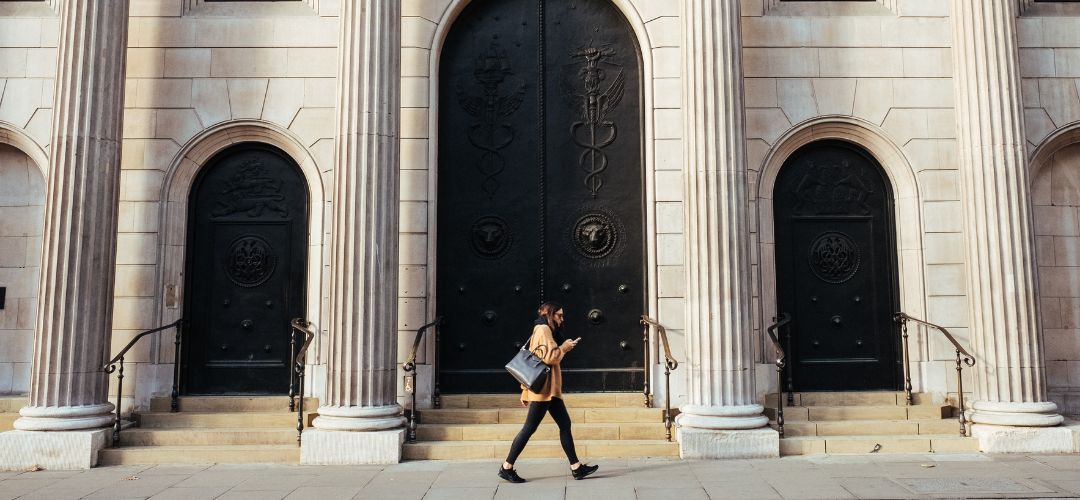Simple pointers on what it is and why it matters
Inflation is always all over the news — the headlines are hard to miss, like “Eat Out to Help Out drives UK inflation to five-year low”, or “PPE costs add to surprise jump in UK inflation in July”.
The COVID-19 crisis has people wondering how inflation will be affected, but what’s it all mean, exactly? What is inflation, how does it work, what are the consequences — and what does it have to do with a pandemic?
Inflation: The how, the what, and the why
At the most basic level, inflation is simple to understand: over time, goods and services increase in price. The “inflation rate” is the rate at which this happens, usually expressed as a percentage over time — so if inflation goes up 2% over a year, then 12 months later, purchases will cost 2% more than they did the year before.
In other words: the higher inflation rises, the less your money is worth, in real terms, as time goes by. So inflation is about your money’s purchasing power — that is, how much your money can buy. Typically strong economic growth leads to higher inflation making it a good indicator of how a country is doing financially, which is why you’ll hear it mentioned so often.
When inflation goes up, what happens?
When it comes right down to it, the economy is consumption-based, that is, it is all about spending. People make purchases, and the money they spend in the shop becomes the shopkeepers’ salary which is then used to make more purchases, to pay taxes, and to pay staff — and that money, in turn, becomes someone else’s income, and on and on it goes.
So there are some advantages to inflation: because money depreciates in value over time, it can encourage spending and consumption and discourage saving. Low levels of inflation can encourage people and businesses to make more investments, to hire more people, and to exchange more goods, so more people are earning more money and the economy grows.
Inflation can also be good news for people who take out loans — because cash is worth more now than it will be in the future, you’re borrowing money that’s worth more, and you’re paying it back with money that’s worth less.
Then there are the disadvantages, the most obvious being that as inflation rises, your savings might be worth less and less with each passing year unless interest rates are able to keep up. Currently, we are experiencing record low-interest rates globally so!
It’s also a big problem when your income doesn’t increase enough to keep up with the inflation rate (also known as wage inflation)— that means you can’t afford as much as you used to, including the necessities. If inflation goes up too much, too quickly, it can really leave people in the lurch.
Inflation has more complex impacts, too, on things like employment, borrowing, and exchange rates — which has further impacts on imports and exports in international trade.
If inflation really gets out of control, it becomes what’s called hyperinflation, when money is worth so little that it’s more or less worthless. Most infamously, this happened in Germany during the 1920s, or in more recent times in Zimbabwe.
It makes sense, then, why we’d want to stop inflation from getting too high. The UK’s central bank, the Bank of England, has a yearly inflation target which is set by the government — they aim to keep inflation at around 2%. We talked a bit about how they do this earlier in the year.
How has the pandemic affected inflation?
Well, after all that, the short answer is that no one’s really sure — at least, not yet.
What’s certain is that the COVID-19 crisis has had a huge impact on all of our lives, and not just on our health — the effects extend from entertainment and education to the global economy.
These things can take years, even decades, to play out. It’s often not until much later, with the benefit of hindsight, that cause and effect can really be pieced together. That’s why there’s always so much attention being paid to the inflation rate, and to interpreting what it means and why.
Although this is only a very basic overview of a complex topic — and economists might argue forever about the specifics of how it all works — we hope that next time, when you see inflation mentioned in the news or hear it brought up in conversation, you’ll have a better idea about what it all means.
Want to know more about inflation check out our Inflation pathway.

